Alicante, a captivating city nestled along the Mediterranean coast, beckons travelers with its rich tapestry of history, culture, and breathtaking natural beauty. From its ancient origins to its modern-day allure, Alicante invites you on a journey of discovery and enchantment.
Steeped in history, Alicante boasts an architectural heritage that spans centuries. The iconic Santa Barbara Castle stands sentinel over the city, a testament to its resilience and grandeur. Wander through the charming streets of the old town, where narrow alleys lead to hidden plazas and centuries-old churches.
History of Alicante
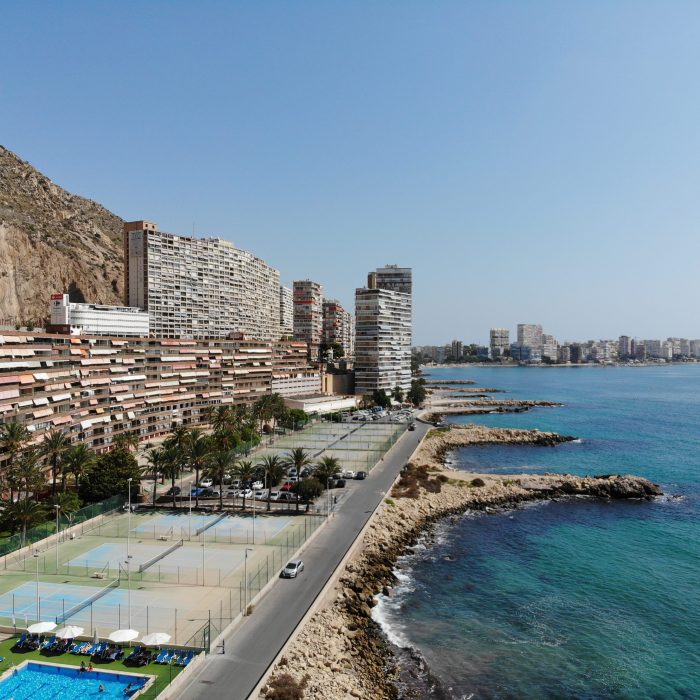
Alicante’s rich history dates back to ancient times, with its origins tracing back to the Iberian settlement of Lucentum in the 4th century BC. Over the centuries, it has been influenced by various cultures, including the Romans, Moors, and Christians, each leaving their mark on the city’s architecture, traditions, and cuisine.
Roman Influence
The Romans conquered the Iberian Peninsula in the 2nd century BC, establishing the province of Hispania Tarraconensis. Lucentum became a prosperous Roman city known as Lucentum, and the Romans built roads, aqueducts, and other infrastructure that helped the city flourish.
Moorish Influence
In the 8th century AD, the Moors, an Islamic empire from North Africa, invaded the Iberian Peninsula. They conquered Lucentum and renamed it al-Laqant, which means “the port of light” in Arabic. Under Moorish rule, Alicante became a major port and trading center, and the Moors built the Santa Barbara Castle, which still dominates the city’s skyline today.
Alicante, a vibrant city on Spain’s southeastern coast, is a great starting point for exploring the rich cultural heritage of Europe. With its proximity to major cultural hubs, Alicante offers easy access to cultural tours that delve into the art, history, and traditions of this diverse continent.
Whether you’re interested in the ancient ruins of Rome, the Renaissance masterpieces of Florence, or the vibrant street art of Berlin, Alicante serves as a gateway to unforgettable cultural experiences.
Christian Reconquest
In the 13th century, the Christian kingdoms of Aragon and Castile began to reconquer the Iberian Peninsula from the Moors. In 1248, Alicante was captured by the Aragonese, who made it part of the Kingdom of Valencia. Under Christian rule, Alicante continued to prosper as a port and trading center, and the city’s walls were expanded to protect it from attack.
Geography and Climate of Alicante
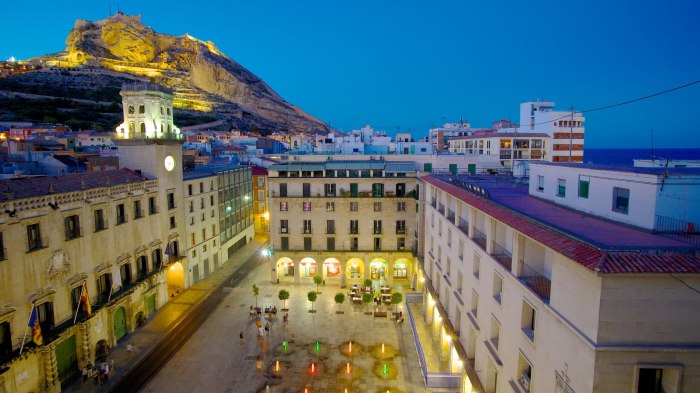
Alicante, a coastal city in southeastern Spain, boasts a captivating geographical location and a Mediterranean climate that makes it a year-round destination.
Alicante is situated on the Costa Blanca, a stretch of coastline known for its pristine beaches and dramatic cliffs. The city is nestled between the Mediterranean Sea and the Serra Grossa mountain range, creating a picturesque backdrop of azure waters and verdant slopes. The topography of the region is diverse, ranging from flat coastal plains to rugged mountains, offering a variety of landscapes to explore.
Climate
Alicante enjoys a temperate Mediterranean climate characterized by warm, dry summers and mild, wet winters. Temperatures during the summer months average around 28 degrees Celsius (82 degrees Fahrenheit), with minimal humidity. The winters are generally mild, with average temperatures hovering around 12 degrees Celsius (54 degrees Fahrenheit) and occasional rainfall.
The city receives an average of 300 days of sunshine annually, making it one of the sunniest cities in Spain. The lack of precipitation during the summer months creates an ideal environment for outdoor activities and beach relaxation.
Natural Beauty, Alicante
The region surrounding Alicante is renowned for its natural beauty and diverse landscapes. The coastline is dotted with pristine beaches, including the iconic Playa del Postiguet, which offers breathtaking views of the Mediterranean Sea. Inland, the Serra Grossa mountain range provides opportunities for hiking, biking, and rock climbing, amidst stunning scenery.
The natural beauty of Alicante extends beyond its beaches and mountains. The city is home to several parks and gardens, including the Parque de El Palmeral, which features a collection of over 800 palm trees and offers a tranquil oasis in the heart of the city. The surrounding countryside is dotted with vineyards, almond groves, and olive trees, creating a picturesque rural landscape.
Economy and Industries of Alicante
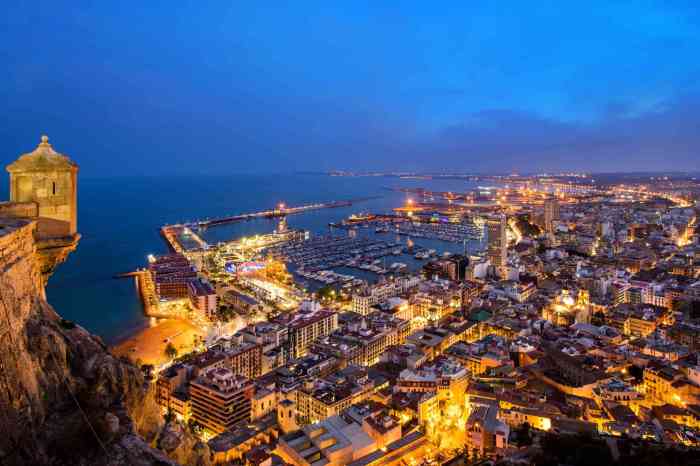
Alicante’s economy is diverse, with key industries driving its growth and prosperity. Tourism, agriculture, and manufacturing are the main pillars of the economy, contributing significantly to employment and economic output.
Tourism
Tourism is a vital industry for Alicante, attracting millions of visitors each year. The city’s beautiful beaches, historic sites, and cultural attractions make it a popular destination for both domestic and international tourists. The tourism industry supports a wide range of businesses, including hotels, restaurants, tour operators, and retail shops.
Agriculture
Alicante has a rich agricultural tradition, with fertile soils and a favorable climate. The region is known for its production of citrus fruits, olives, and vegetables. Agricultural exports play a significant role in the local economy, contributing to job creation and economic growth.
Manufacturing
Manufacturing is another important industry in Alicante. The city is home to a number of manufacturing facilities, producing a wide range of products, including food and beverages, textiles, and chemicals. Manufacturing contributes to the local economy by providing jobs and supporting local businesses.
Transportation and Logistics
Alicante is a major transportation and logistics hub, with excellent infrastructure connecting it to the rest of Spain and Europe. The city’s port is one of the busiest in the Mediterranean, handling a significant volume of cargo. Alicante also has a well-developed road and rail network, facilitating the movement of goods and people.
Culture and Lifestyle in Alicante
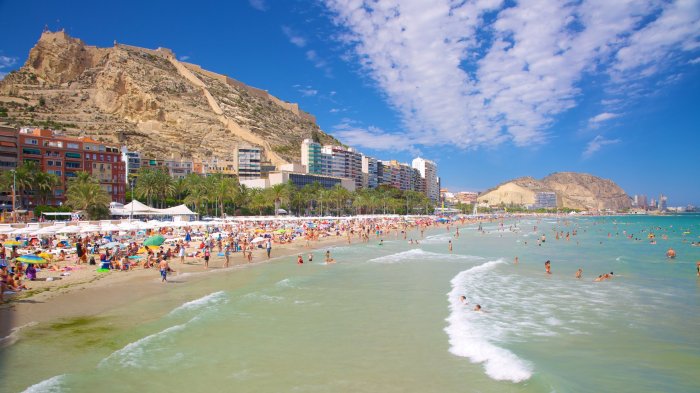
Alicante, nestled on the southeastern coast of Spain, boasts a rich tapestry of culture and traditions that have shaped its vibrant lifestyle. From colorful festivals to delectable cuisine, Alicante offers an immersive experience for visitors and locals alike.
The city’s cultural heritage is deeply rooted in its past, with influences from various civilizations that have left their mark on its architecture, art, and customs. Alicante’s historic quarter, known as El Barrio de la Santa Cruz, is a testament to this diverse legacy, with its narrow cobbled streets and whitewashed houses adorned with colorful tiles and wrought-iron balconies.
Local Customs and Traditions
Alicante’s local customs and traditions are an integral part of its cultural identity. The city’s patron saint, Santa Faz, is celebrated with a grand festival each year in April. During the festival, a procession carrying a replica of the sacred cloth said to bear the imprint of Christ’s face takes place, accompanied by traditional music and dancing.
Another important tradition is the “Bous a la Mar,” a unique bull-running event held in June. Unlike traditional bullfights, the bulls are released into the streets and run towards the sea, where they are met by swimmers and boats. This adrenaline-pumping event attracts thousands of participants and spectators each year.
Art and Music Scene
Alicante’s art and music scene is thriving, with numerous galleries, museums, and theaters showcasing local and international artists. The Museum of Contemporary Art of Alicante (MACA) is a must-visit for art enthusiasts, housing a diverse collection of modern and contemporary works.
Music is an integral part of Alicante’s cultural landscape, with a variety of genres represented. The city is home to the Alicante Symphony Orchestra and the ADDA Auditorium, which hosts concerts, operas, and ballets throughout the year. Traditional Valencian music, known as “dolçaina i tabalet,” is also popular, with street performances often taking place in the historic center.
Vibrant Lifestyle and Recreational Activities
Alicante offers a vibrant lifestyle with a wide range of recreational activities to cater to all tastes. The city’s beautiful beaches, such as Postiguet Beach and San Juan Beach, are perfect for sunbathing, swimming, and water sports. The nearby Santa Barbara Castle, perched atop Mount Benacantil, provides stunning panoramic views of the city and the surrounding coastline.
For outdoor enthusiasts, the surrounding mountains offer ample opportunities for hiking, biking, and climbing. The Serra Gelada Natural Park is a popular destination, with its dramatic cliffs, secluded coves, and hiking trails.
Alicante’s culinary scene is equally impressive, with a variety of restaurants serving traditional Valencian dishes and international cuisine. Paella, a traditional rice dish with seafood and vegetables, is a must-try. The city also boasts a lively nightlife, with numerous bars and clubs offering a vibrant atmosphere until the early hours.
Tourism in Alicante
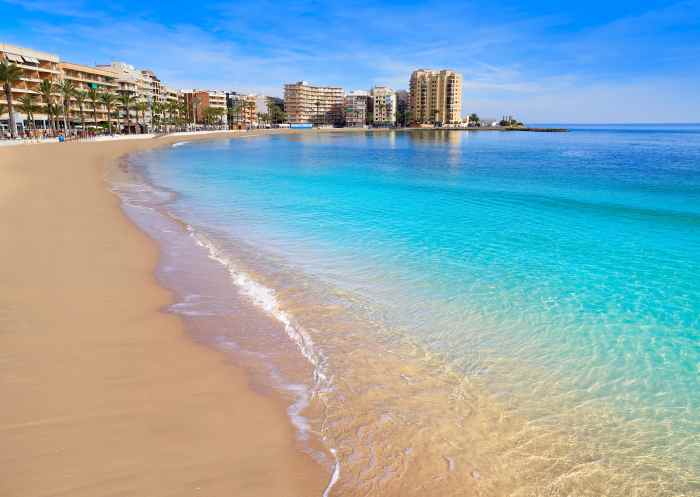
Alicante, located on the Mediterranean coast of Spain, is a popular tourist destination known for its beautiful beaches, rich history, and vibrant culture. The city offers a wide range of attractions and landmarks, making it an ideal place for a memorable vacation.
Beaches
Alicante boasts some of the most stunning beaches in Spain. Postiguet Beach, located right in the city center, is the most popular and offers a wide range of amenities. Other popular beaches include San Juan Beach, which is known for its long stretch of golden sand, and Albufereta Beach, which is surrounded by a beautiful natural park.
Museums
Alicante is home to several museums that showcase the city’s rich history and culture. The Archaeological Museum of Alicante (MARQ) is a must-visit for history buffs, as it houses a vast collection of artifacts from the city’s past. The Museum of Contemporary Art (MACA) features a diverse collection of modern and contemporary art, while the Gravina Museum of Fine Arts (MUBAG) houses a collection of paintings, sculptures, and drawings from the 16th to the 20th centuries.
Historical Sites
Alicante is steeped in history, and there are many historical sites to explore. The Santa Barbara Castle, which overlooks the city from atop Mount Benacantil, is one of the most iconic landmarks. The castle dates back to the 9th century and has been used by various civilizations throughout history. Other historical sites include the Basilica of Santa Maria, which is a beautiful example of Gothic architecture, and the Town Hall, which is a magnificent Renaissance building.
Cultural Experiences
Alicante is a vibrant city with a rich cultural scene. The city hosts a number of festivals throughout the year, including the Bonfires of San Juan, which is a spectacular celebration that takes place in June. Alicante is also home to a number of theaters, cinemas, and concert halls, which offer a variety of entertainment options.
Infrastructure and Services
Alicante has a well-developed tourist infrastructure. The city is easily accessible by air, train, and bus. There are a wide range of accommodation options available, from budget hostels to luxury hotels. Alicante also has a variety of restaurants, bars, and cafes, which offer a wide range of cuisines.
Transportation and Infrastructure in Alicante
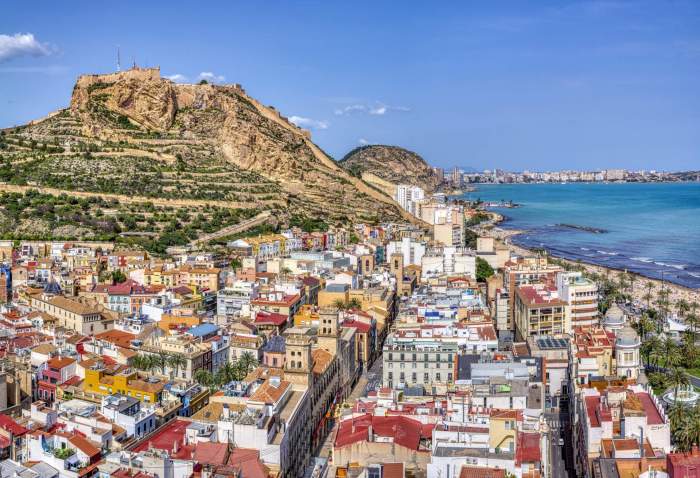
Alicante, a coastal city in southeastern Spain, boasts a well-developed transportation network and infrastructure. The city is connected to major cities within Spain and internationally through its road, rail, and air links. Alicante also has a comprehensive public transportation system that makes it easy for residents and visitors to get around.
Road Network
Alicante is well-connected by a network of highways and motorways. The A-7 motorway, also known as the Autopista del Mediterráneo, runs along the coast and connects Alicante to Barcelona in the north and Murcia and Andalusia in the south. The A-31 motorway connects Alicante to Madrid and the interior of Spain. Within the city, there is an extensive network of roads and avenues that provide easy access to different neighborhoods and landmarks.
Alicante’s balmy climate stands in contrast to the often unpredictable amsterdam weather. While Amsterdam’s charm lies in its canals and cobblestone streets, Alicante’s allure stems from its sunny beaches and vibrant culture. Both cities offer unique experiences, but Alicante’s Mediterranean warmth provides a respite from the cooler climes of Amsterdam.
Railways
Alicante has a modern railway station that is served by high-speed trains (AVE) and regional trains. The AVE trains connect Alicante to Madrid in just over two hours, making it a convenient option for day trips or business travel. Regional trains connect Alicante to other cities in the Valencia region, such as Valencia, Castellón, and Murcia.
Airport
Alicante-Elche Airport (ALC) is located about 10 kilometers southwest of the city center. It is the fifth busiest airport in Spain and serves as a major hub for both domestic and international flights. The airport has connections to major cities in Europe, North Africa, and the Middle East.
Alicante, with its stunning beaches and rich history, is an ideal destination for travelers seeking both relaxation and exploration. For those who prefer a more sustainable travel experience, there are several eco-lodges located nearby. These eco-lodges offer a unique opportunity to immerse yourself in nature while enjoying comfortable accommodations and amenities.
Upon returning to Alicante, you can continue your exploration of the city’s charming old town and savor the local cuisine.
Public Transportation
Alicante has a comprehensive public transportation system that includes buses, trams, and a light rail system. The bus network is extensive and covers all parts of the city. The tram system has two lines that connect the city center to the beach and the university campus. The light rail system, known as the TRAM, connects Alicante to neighboring towns and cities, such as Benidorm and El Campello.
Infrastructure Development
Alicante has been undergoing significant infrastructure development in recent years. The city has invested heavily in improving its transportation network, including the construction of new roads, bridges, and tunnels. The city is also working to improve its public transportation system and make it more accessible for residents and visitors.
Education and Healthcare in Alicante
Alicante boasts a well-developed educational system, offering a wide range of options for students of all ages. The city is home to the University of Alicante, a public university with over 30,000 students, offering a diverse range of undergraduate and postgraduate programs. Other notable educational institutions include the Miguel Hernandez University of Elche, just outside Alicante, and several private universities and colleges.
In terms of healthcare, Alicante offers a comprehensive and modern healthcare system. The city is served by a network of hospitals, clinics, and medical centers, providing a wide range of medical services. The University Hospital of Alicante is a major referral center for the region, renowned for its specialized medical care and research facilities. The city also has a strong network of private healthcare providers, offering a variety of services to complement the public healthcare system.
The quality of education and healthcare in Alicante is generally considered to be high. The University of Alicante is consistently ranked among the top universities in Spain, and its graduates are highly sought after by employers. The healthcare system in Alicante is also highly regarded, with modern facilities and skilled medical professionals.
Educational Institutions
Alicante offers a diverse range of educational institutions, catering to the needs of students of all ages and backgrounds.
– The University of Alicante is a public university founded in 1979. It is the largest university in the province of Alicante, with over 30,000 students enrolled in undergraduate and postgraduate programs. The university offers a wide range of academic disciplines, including arts, sciences, engineering, and medicine.
– Miguel Hernandez University of Elche is a public university located just outside Alicante. It was founded in 1996 and has over 15,000 students enrolled in various undergraduate and postgraduate programs. The university is known for its strengths in the fields of engineering, technology, and health sciences.
– In addition to the universities, Alicante has several private universities and colleges, offering a variety of academic programs. These include the Catholic University of Valencia (UCV), the European University of Valencia, and the CEU Cardenal Herrera University.
Healthcare System
The healthcare system in Alicante is comprehensive and modern, providing a wide range of medical services to the population.
– The University Hospital of Alicante is a major referral center for the region, offering specialized medical care in a variety of disciplines, including cardiology, oncology, and neurosurgery. The hospital has over 800 beds and employs over 2,000 healthcare professionals.
– In addition to the University Hospital, Alicante has several other public hospitals, including the General Hospital of Alicante and the Hospital of Villajoyosa. These hospitals provide a range of general and specialized medical services to the population.
– Alicante also has a strong network of private healthcare providers, including hospitals, clinics, and medical centers. These providers offer a variety of services, including primary care, specialist consultations, and diagnostic tests.
Quality of Education and Healthcare
The quality of education and healthcare in Alicante is generally considered to be high.
– The University of Alicante is consistently ranked among the top universities in Spain, and its graduates are highly sought after by employers. The university has a strong research focus and is actively involved in international collaborations.
– The healthcare system in Alicante is also highly regarded, with modern facilities and skilled medical professionals. The University Hospital of Alicante is a major referral center for the region, and its specialists are recognized for their expertise in a variety of medical disciplines.
Notable Figures and Events in Alicante
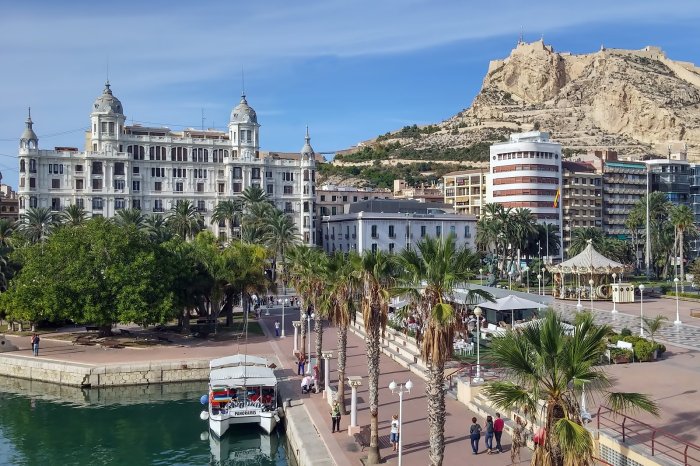
Alicante has witnessed a plethora of influential figures and significant historical events that have left an indelible mark on the city’s identity and development.
These individuals and milestones have played a pivotal role in shaping Alicante’s cultural heritage, economic prosperity, and overall character.
Notable Individuals
Among the notable individuals who have contributed to Alicante’s legacy are:
- Gabriel Miró, a renowned novelist and poet who captured the essence of Alicante’s landscapes and people in his works.
- Miguel Hernández, a celebrated poet of the 20th century, known for his poignant verses that reflected the struggles and aspirations of the Spanish people.
- Oscar Esplá, a prominent composer and conductor who played a significant role in the development of Spanish music.
Historical Events
Alicante’s history is marked by several important events, including:
- The founding of the city in the 3rd century BC by the Carthaginians, who established it as a trading port.
- The Moorish conquest in the 8th century, which brought significant cultural influences to the city.
- The Reconquista in the 13th century, when Alicante was reconquered by the Christian forces of the Kingdom of Valencia.
These figures and events have left a lasting legacy on Alicante, contributing to its rich cultural heritage and shaping its unique identity.
Outcome Summary
As the sun sets, Alicante transforms into a vibrant hub of entertainment and nightlife. The city’s promenade comes alive with street performers, bustling restaurants, and lively bars. Whether you seek sun-soaked beaches, cultural immersion, or culinary delights, Alicante offers an unforgettable experience that will linger in your memories.
FAQs
What is Alicante known for?
Alicante is renowned for its stunning beaches, historic castle, vibrant nightlife, and delicious cuisine.
What is the best time to visit Alicante?
The best time to visit Alicante is during the spring or fall, when the weather is pleasant and there are fewer crowds.
Is Alicante a safe city?
Yes, Alicante is generally considered a safe city with a low crime rate.